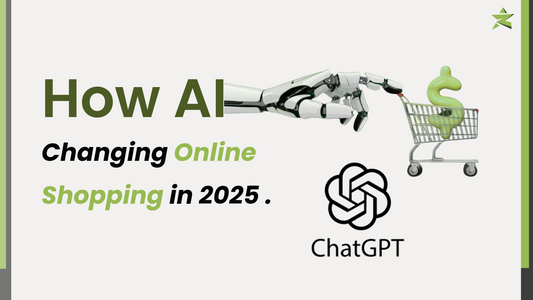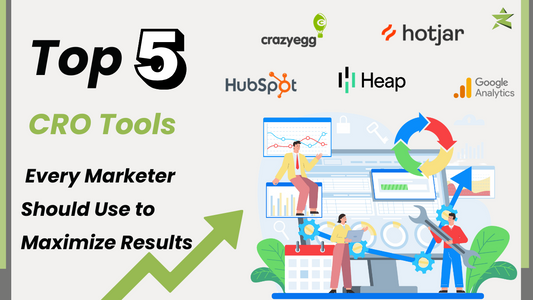Artificial Intelligence (AI) has become a transformative force in e-commerce, offering innovative solutions that enhance business processes and customer experiences. With nearly three in four businesses already leveraging AI, it's clear that the technology is reshaping how online businesses operate. From streamlining customer service to predicting sales trends, AI provides numerous opportunities for maximizing efficiency and growth in the e-commerce landscape.
How AI is Reshaping E-commerce

E-commerce businesses benefit uniquely from AI because many tasks in this field are data-intensive and suited for AI’s capabilities. For instance, AI can manage customer service through chatbots, offer personalized product recommendations, and support robust analytics for better decision-making. The use of AI in e-commerce can span backend operations, corporate strategies, and customer-facing applications, leading to improved efficiency, enhanced customer experiences, and competitive advantages.
Types of AI and Their Impact on E-commerce
- Machine Learning: This type of AI analyzes large datasets to identify patterns and trends. In e-commerce, machine learning can be used to gain insights into consumer behavior, predict demand, and make data-driven business decisions. Machine learning algorithms can also be used for dynamic content delivery on websites, offering personalized product recommendations based on a user's browsing history.
- Natural Language Processing (NLP): NLP enables AI to understand and interpret human language, both text and spoken words. It’s commonly used in e-commerce for chatbots, voice assistant interactions, and analyzing customer feedback. NLP helps in providing better customer support, understanding customer sentiments, and enhancing user engagement.
- Deep Learning: Unlike traditional machine learning, deep learning can work with unstructured data like images and text. In e-commerce, deep learning models are useful for visual search, product recommendations based on image recognition, and more accurate demand forecasting.
- Predictive Analytics: This type of AI focuses on forecasting future trends based on past data. E-commerce businesses use predictive analytics to anticipate sales demand, manage inventory efficiently, and identify customers who may churn, allowing for timely interventions.

Key Use Cases for AI in E-commerce
- Dynamic Website Content: AI can personalize website content in real time based on user behavior. For example, product recommendations can be dynamically generated based on a user’s browsing history, enhancing the customer experience
- and increasing sales. Additionally, dynamic pricing algorithms adjust product prices based on market conditions, demand, and competitor pricing.
- Chatbots: AI-powered chatbots provide round-the-clock customer service, handling routine inquiries and transactions, freeing up human resources for more complex tasks. They can detect user sentiment, adapt responses, and escalate cases to human agents when necessary.
- Virtual Assistants and Voice Search: AI E-commerce businesses are leveraging virtual assistants and voice search capabilities to provide a more accessible shopping experience. For example, customers can reorder products or seek information by simply speaking to their devices. Some companies have even created specialized voice-enabled tools, such as Estée Lauder’s makeup assistant for visually impaired users.
- Review and Comment Filtering: AI can help businesses filter and analyze product reviews and customer comments. Natural language processing categorizes feedback by sentiment or specific product features, allowing businesses to quickly gauge customer satisfaction and make improvements.
- Targeted Marketing Campaigns: AI enables highly targeted marketing by analyzing customer data to create personalized advertising strategies. This level of personalization can reduce customer acquisition costs and improve return on investment by delivering relevant content to the right audience.
- Automated Processing: AI is used to automate various administrative tasks, such as processing returns and detecting fraud. Automated systems can evaluate return requests, generate shipping labels, and update inventory, reducing manual errors and labor costs.
- Sales and Demand Forecasting: Machine learning models can predict future sales trends based on historical data, which is valuable for inventory management and marketing planning. Accurate forecasting helps e-commerce retailers optimize their supply chain, avoid stockouts, and minimize waste.
Conclusion: See How AI Can Transform Your E-Commerce
AI is no longer optional for AI in e-commerce businesses looking to thrive in a competitive marketplace. From enhancing customer engagement with chatbots to driving sales through personalized marketing campaigns, AI offers numerous benefits across the entire e-commerce cycle. Partnering with technology providers like IBM and leveraging AI tools such as IBM Business Automation Workflow and IBM Robotic Process Automation can help e-commerce businesses stay ahead of the curve.
By adopting AI solutions, businesses can streamline operations, improve customer satisfaction, and make more informed decisions that drive growth. Start exploring how AI can transform your e-commerce business and help you achieve your goals.
This article is optimized for SEO with targeted keywords such as "AI in e-commerce," "AI use cases," "machine learning," "NLP," and "predictive analytics." It offers valuable insights into how AI revolutionizes the e-commerce industry, providing readers with actionable information.










